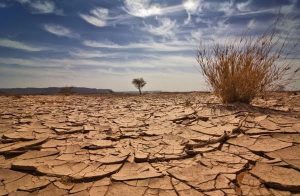Secretary General of the Organisation of Petroleum Exporting Countries (OPEC), Dr. Mohammad Barkindo, has said that oil producers could help the world reduce its carbon footprints, stating that the race for a cleaner environment was not for renewables alone.
Speaking at the December 2018 UN Climate Change Conference in Katowice Poland, Barkindo, explained the scale of the challenges posed by global greenhouse gas emission was one that one single energy source would solve.
He claimed the global oil industry could help reduce this, and that it had the capacity and experience to do this with good operational practices and improved fuel efficiency standards.
OPEC, the world’s single largest oil producers’ bloc with about 14 member countries currently has 1,214.21 billion barrels of proven oil reserves. It has equally asked stakeholders in the climate change debate to allow the oil industry become part of the solution to the challenges of greenhouse gas emission.
“Let me begin by stating unequivocally: the oil industry must be part of the solution to the climate change challenge. We too believe that “there is no Planet B.” We are responsible citizens of this planet,” said Barkindo, in his address to the Katowice COP meeting.
He said the scale of the challenge means that no single energy source is a panacea; nor can the contribution of an entire industry or group of countries be overlooked.
“This is not a race to renewables alone; it’s a race to lower greenhouse gas emissions,” added Barkindo, who explained: “The oil industry possesses know-how and experience for reducing our environmental footprint: working practices and fuel efficiency standards have improved exponentially over the decades.”
According to him, more needs to be done, “Nevertheless, the industry’s capacity for technological innovation must be harnessed within this process.”
This, he added, is particularly the case considering oil’s enabling role in economic growth and social progress.
“Indeed, oil has fuelled our modern civilization. I should emphasize on the facilitative role of international trade, this role should continue.
“Furthermore, energy poverty remains a scourge of our time: today one billion people lack access to electricity and three billion lack clean fuels for cooking.
“An ever cleaner oil industry, driven by technological innovation, can improve the livelihoods of billions of people in a sustainable way,” he added.
Urging parties to promote all-inclusive policies that are not discriminatory in content and implementation, Barkindo, also asked that the corporate world should join hands with governments and civil society in promoting such inclusiveness.
He said: “Appropriate technologies that would address carbon emissions leading to the elimination of these emissions are not beyond reach and are indeed feasible. The funding of the R&D of these technologies is the responsibility of both producers and consumers.
“Our member countries are playing their role creditably in this regard to ensure that the over 1.2 trillion barrels of proven oil reserves are not stranded. Oil and gas will continue to account for more than 50% of the global energy mix well beyond 2040.”
“The energy transition is therefore not a transition from one energy source to another. All sources of energy are needed to meet current and future demand,” explained the OPEC chief.





